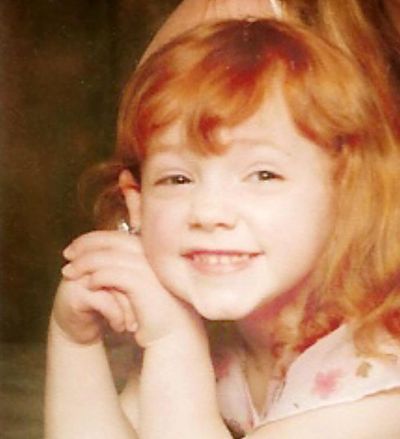This column reflects the opinion of the writer. Learn about the differences between a news story and an opinion column.
Front Porch: Doing something to help children, for Summer’s sake

My new business cards arrived in the mail recently. They read “Spokane County Court Services, Cindy Hval CASA/Guardian Ad Litem.”
I’d heard about the CASA program many years ago. When a petition has been filed alleging a child has been abused or neglected, the Juvenile Court appoints an individual to serve as a court appointed special advocate.The role of a CASA is to represent the best interest of the child by making independent observations of the child’s situation and submitting a written report to the court.
After 30 hours of training, plus my first in-service, I’ve already been assigned my first case.
But it was another child I thought of as I held the business cards in my hand – she’s the reason I wanted to be a CASA in the first place.
Her name was Summer Phelps and she died on March 10, 2007, at age 4 – her body a broken, bruised and bloody roadmap of the abuse she’d suffered at the hands of her father and stepmother.
My brother-in-law was the ER physician on duty the night Summer was brought into Deaconess Hospital. She arrived with no pulse and no breath sounds, but he and the medical staff fought desperately to bring her back.
“After 20 minutes, I had to call it,” said my brother-in-law, recalling that night.
It was the worst case of abuse he’d ever seen. He doesn’t talk about Summer, or what he saw on her battered little body that night – but she still haunts his nightmares.
Eventually, Summer’s father and stepmother were convicted of homicide by abuse. I struggled to read the newspaper accounts of the trial. Reading it again while writing this column hasn’t diminished the horror. I walked away from my desk many times – my stomach knotted, my eyes blurred with tears.
Ten years ago, I vowed to do something to help the children in our community, but at the time my hands were full with my own family.
In January when a friend mentioned she was taking the CASA training, I remembered that promise, and at her urging, signed up.
I’m glad I did because the need is great.
“We average 52 kids a month coming into the system,” said Patrick Donahue, CASA/GAL program coordinator and Juvenile Court volunteer coordinator. “We have six staff GALs (guardian ad litem) who advocate for an average of 65-75 kids each.”
The roles of a CASA and a GAL are identical; CASA just means they are volunteers. Currently, 142 active volunteers represent about 370 children.
“CASA volunteers are vital to the dependency process in that they advocate for fewer children and can be more involved in the overall advocacy for the children’s best interest,” Donahue said. “Children with a CASA volunteer may spend less time in the dependency process in that their cases may resolve sooner. They typically have fewer disruptions in placements and their overall time in foster care can be more positive with a CASA volunteer.”
CASA volunteers meet regularly with the child/children they’re assigned to. The kids typically range in age from newborn to 12 years. CASAs ask questions and observe the child’s living conditions. They talk with the parents, the foster parents, teachers, doctors and day care providers to assess how the child is doing.
The ultimate goal is to reunite the parents with their child if the parents can provide a safe and stable environment. A CASA’s recommendation to the court offers an important independent insight and can be a significant factor in deciding what’s ultimately best for the child.
“Spokane takes great pride in hearing foster children say, ‘My CASA was the one person in my life at that time that was always there for me.’ ” Donahue said.
That isn’t to say every dependency case ends in happily ever after. The scars of emotional trauma and abuse can linger long after physical scars heal. The pain of being separated from parents can have lasting consequences. Not every child gets a healthy, intact family and a house with a white picket fence, but at the bare minimum they can have a safe home, free from violence and neglect.
The kind of home Summer Phelps deserved.
Contact Cindy Hval at dchval@juno.com. She is the author of “War Bonds: Love Stories From the Greatest Generation.” You can listen to her podcast, “Life, Love and Raising Sons,” at SpokaneTalksOnline.com. Follow her on Twitter at @CindyHval.
